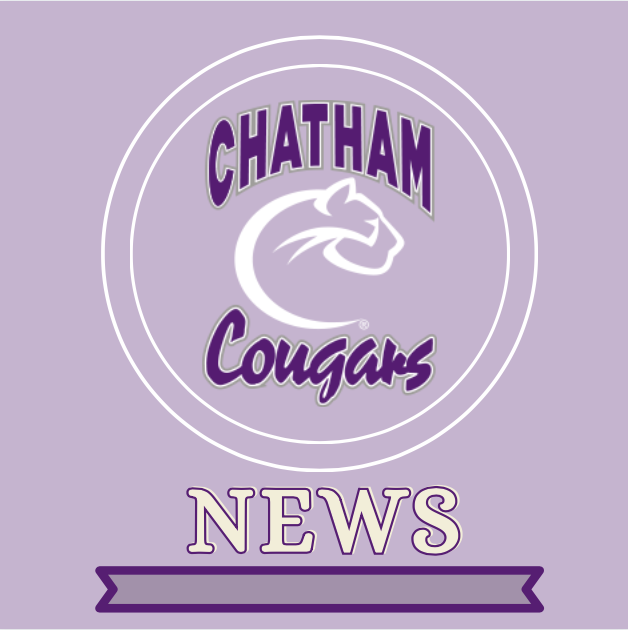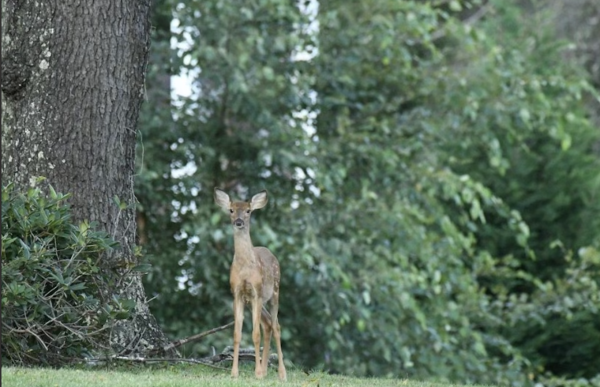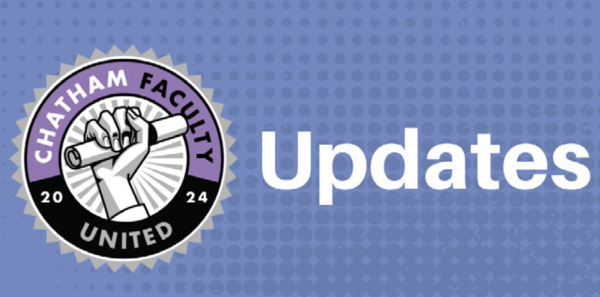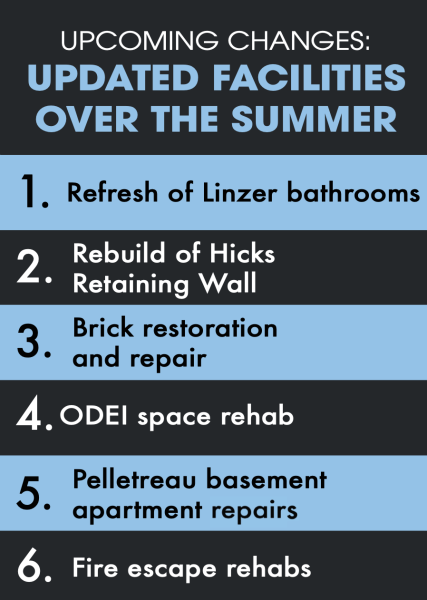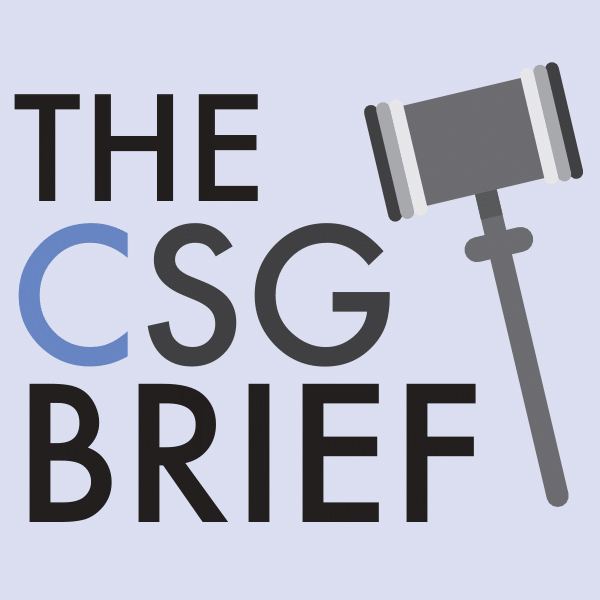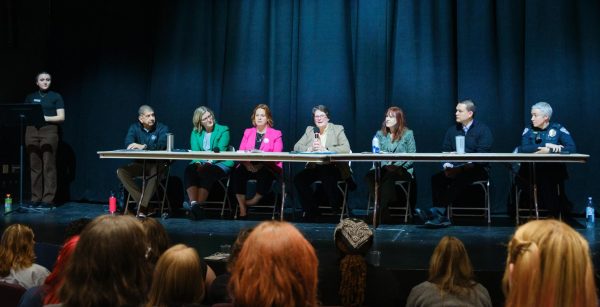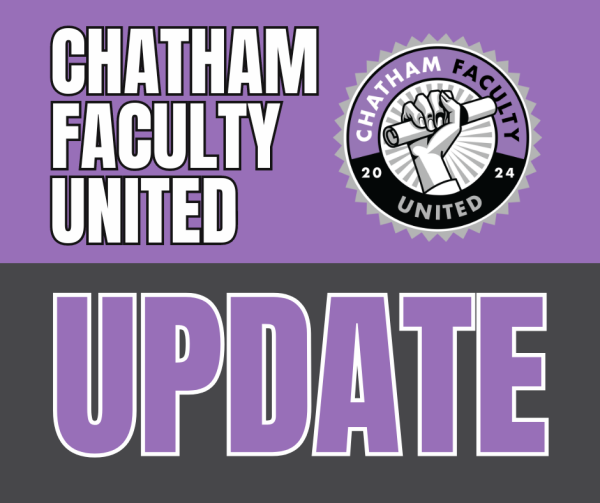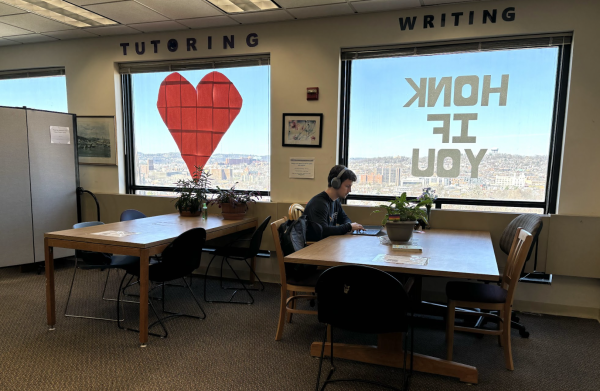Questions raised about athletic department culture after director’s past controversial comment resurfaces
A racially insensitive comment made by Chatham University Athletic Director Leonard Trevino in 1996 recently resurfaced on social media, sparking questions and concerns from Chatham Student Power (CSP) and Chatham Student Government (CSG).
CSP posted a screenshot on Oct. 4 to its Instagram account (@chathamcsp) of an article from The Baltimore Sun titled “Goucher coach apologizes for remark Head of basketball team had referred to players as ‘my plantation’,” which was written in 1997. CSP tagged Chatham University (@chathamu) and the athletic department’s (@chathamcougar) official Instagram accounts in the post.
Trevino was a basketball coach at Goucher College in Maryland in 1996. During a team practice in December of that year, Trevino referred to his team of predominantly Black student athletes as “my plantation.” The comment was not widely known by the rest of the college until the following semester, after team members were overheard joking about it. This led to a student forum on racism and protest at the college.
Trevino soon after apologized to his team at Goucher and acknowledged the harm of racist statements.
The Baltimore Sun article came to the attention of CSP, an organization that focuses on uniting students around social justice issues, after it was sent to a CSP officer, Taylor Pelow ’22, by a random Chatham student, believing it was relevant to the organization.
CSP’s Oct. 4 post commented on the athletic department’s recent Instagram activity, calling its support for the Black Lives Matter movement “performative.” CSP also expressed concern via social media that Trevino’s comment had never been addressed while he was at Chatham and it was “suspicious,” given the University’s dedication to inclusion and diversity.
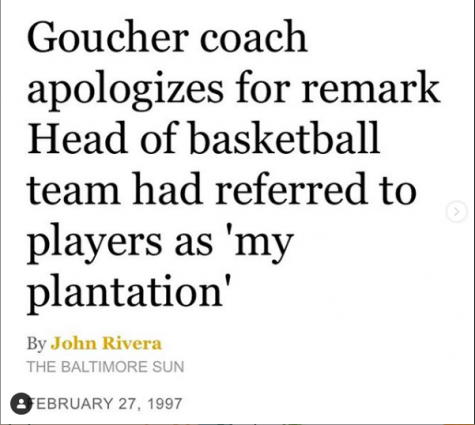
The following statement is posted in Chatham Student Power’s instagram post caption.
OCT 4 comment – As many of you all have been seeing, the Chatham Cougar athletics instagram has very active in their BLM posts. While this might be coming from a place of good intentions, these posts—Chatham students in BLM t-shirts, student athlete photos at protests over the summer—appear to be performative. We believe it’s important to note that these posts are coming after non-Black student athletes have been heard saying the n-word and making racially insensitive remarks with little to no repercussions. What’s particularly interesting about the IG posts is that there has been no addressing of comment made by head of Athletics, Leonard Trevino, when he was the men’s basketball coach at a different university, Goucher College in 1997. The remark is included in the photos above. Even though this happened in 1997, the fact that Chatham hired him after and has NEVER (in our time) addressed this is harmful towards Black students on campus, and suspicious given our university’s supposed dedication to diversity and inclusion.
Chatham’s official Instagram account responded to the post, commenting that it would pass along this information to Chatham leadership and follow up with more information when it became available.
When CSP did not hear back from Chatham within a week, it shared an official statement with the Communiqué and posted about the matter on the organization’s Instagram account once again.
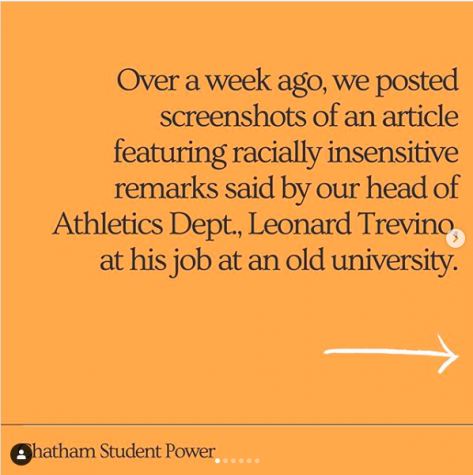
The following statement is posted in Chatham Student Power’s instagram post caption.
OCT 12 comment – ❗️STUDENT ACTION REQUIRED ❗️@chathamu@chathamcougar This is what we are asking for now from Chatham. We are not asking for much. If you are a student who understands how detrimental the silence from the institution is and you want to get involved please dm us. If you are a student athlete or a previous student athlete and you have any experiences or anything at all involving athletics at Chatham that you would like to share, please dm us if you feel comfortable to. It will stay completely anonymous and will not be shared publicly unless discussed with you first. #chathamu#chathamathletics
POINT OF CLARIFICATION: We are not doing this to attack anyone or say people can’t grow/change or be sincere. We are honestly just surprised that no public (to the ENTIRE campus) comments or acknowledgement have been made, from both Mr. Trevino and Chatham University. Especially since the university has been posting a lot about Racial Justice, etc. the silence is aware to us. We are aware of some discussions being held within athletics, but there have been none presented to the whole Chatham community.
CSP wrote in its statement, “On behalf of the Executive Board of Chatham Student Power, we are concerned that Athletic Department Head, Leonard Trevino’s, previous racially insensitive comments and Chatham University’s silence on further reparations for them are illustrative of larger underlying issues within our Athletic Department as well as our university administration.”
Although the executive board acknowledged that Trevino’s comment was made more than 20 years ago, it demanded that Chatham “denounce these behaviors that are characteristic of racism” and for Trevino to “take action to ensure members of the Chatham community understand he regrets his harmful statements and that he will do more to be the anti-racist ally we all must be today.”
Both CSP and CSG requested Trevino make a written statement available to the Chatham community, attend the Oct. 15 CSG meeting to answer questions from Chatham community members and document his efforts to make the athletic department “more racially inclusive and comfortable place for students of color.”
CSP’s additional demands included that Trevino attend an online public forum to address any other questions from the Chatham community and for Chatham administration to issue a “formal statement on why decisive action has not been taken in this circumstance thus far, what it can do to make sure new hires are thoroughly vetted for racist behavior, and how it can learn from this controversy in the future.”
Dr. David Finegold, President of Chatham University, attempted to address some of CSP’s concerns in an interview with the Communiqué on Oct 15.
On the point of Chatham’s silence, Dr. Finegold said CSP made the Instagram post during the week of Chatham’s homecoming, which is one of the busiest of the year for administrators. President Finegold hoped the CSG meeting with Trevino, and their interviews with the student newspaper, would help express the University’s position. He noted, “Our goal is to be transparent and share that with CSG and with everybody.”
Trevino attended the CSG meeting and had a personal interview with the Communiqué on Oct. 15 to explain and apologize for his comment.
As Trevino explained, he intended the comment as a joke at the time in response to a player who implied that he was treating the team like slaves for making them run laps, even though they were winning games during that season.
“We were just running laps to stay in shape. …One of the guys was goofing around … and he said, ‘You’re such a slave driver.’ He wasn’t attacking me, just playing around, and that’s when I made the comment,” Trevino said.
Trevino, being Hispanic, went on to explain that both he and the team members were people of color at Goucher College, which was not particularly diverse at the time. He felt that it was a safe environment for him and his team to interact.
When asked to explain the context of his comment, Trevino was initially hesitant, worried that it may hurt students’ feelings. He clarified, “I’m not giving the circumstances to absolve myself. I don’t mean to do that. I’m giving the circumstances, but I know it was wrong. … I don’t want to make excuses.”
At the CSG meeting, Trevino formally apologized, saying “I am so sorry. I am a supporter of the Black community. It was 23 years ago. I am a different person now.” He also shared an official statement, as was requested.
When asked about how he had grown and changed since then, Trevino responded, “I know it was wrong, I know it caused pain. … Words have an impact. I didn’t know that in 1997.” It was clarified at the meeting that since that comment was made in the ‘90s there has not been a similar incident involving Trevino.
“Trevino has done an outstanding job as our athletic director over his six years at Chatham. … It’s important to keep in mind that he worked [at Goucher College] for another 17 years after that one remark, and so I think we should judge someone based on who they are as a person and their whole career, not a single remark that was made,” Dr. Finegold told the Communiqué. The Goucher administration “worked with him for many years and endorsed him not just as a good athletic director but as someone who was very supportive of diversity, equity and inclusion, and so we take that very seriously.”
“I’m sorry that it happened. And I’m sorry if anyone was hurt. And I’m sorry that it hurts anyone to this day,” Trevino added.
Members of the CSP Executive Board agreed that Trevino “sounded very genuine” with his apology and they appreciated what he did to answer their questions at the Oct. 15 CSG meeting.
“He reflected on it as if he felt bad, as if he considers himself someone who is an advocate for racial equality and justice,” said Ava Roberts ‘22, a member of both CSG and CSP. “However, my questions specifically for him were, ‘I like hearing all of these things. I appreciate that the head of the athletic department is declaring himself an anti-racist in a public meeting, but what does that really mean in the context of action? What are you going to do to bring this anti-racist idea to your student athletes, to your department, to your coaches?’”
While some questions at the CSG meeting focused on Trevino’s past comment, more CSP and CSG members appeared to be concerned about the culture of the athletic department as a whole.
“The cultural issues among student athletes are bigger than Mr. Trevino’s statement and the current COVID-19 outbreak,” said Leah Whitacre ’23, a CSP member who attended the meeting.
Roberts added, “I feel like the basis of our statement was such that we were trying to illustrate that we’re concerned that there are deeper cultural trends and norms based on racism, sexism, xenophobia that are present in our University’s administration that we are not addressing.”
Trevino reported that he was aware of three racial-bias incidents within the department in the last five years. Zoe Levine ’21, co-president of CSP, said she found that number to be surprising because she felt like she had heard about more problems during her years at Chatham. She indicated that this might be a communication problem between students and administration.
Morgan (Moe) Williams ’22, the other co-president of CSP, spoke about her personal experience with some Chatham student athletes. During an intro to women and gender studies class, and the Title IX presentation at her first-year orientation, she said she repeatedly saw male athletes inappropriately laughing. Although this was a couple years ago, she said that she thinks there is still a problem on campus.
Roberts believes that Chatham missed a fundamental step when the University rebranded to a co-ed and D3 sports institution. Instead of initially instilling Chatham values, now the University is “playing catchup.”
“People who have grown up in sports culture, specifically men who have grown up in sports culture their whole lives, a lot of that socialization in and of itself is not really something that is cohesive with Chatham’s anti-racist, anti-sexist and pro-women culture. I feel like our University missed an opportunity in this transition, between these two very different types of colleges, to teach new students how to be culturally competent,” Roberts said.
While Dr. Finegold said, “I’m not aware of any expression of concern about racism within the athletic department,” Trevino acknowledged that he has heard some rumors about the teams and hoped that those who knew more would report it to the department.
“If that is happening, it is unacceptable, and it deserves immediate attention,” Trevino said at the CSG meeting. “We want to have an inclusive, non-racist environment. Are we a finished product? No, but I think we are close. I think the BLM movement has raised questions about ‘Are we doing things right? Can we do a lot more? What is performative and what isn’t?’ And I think we have a long way to go with that.”
Questions about athletic culture turned to questions about the high number of positive COVID-19 tests in the student athlete population. A student in attendance at the meeting brought up the seriousness of the situation, saying that it was no longer a matter of “boys will be boys,” but rather, “boys will be bioweapons.”
“We don’t want to be upset or sanction people for getting COVID. This is a disease. This is a medical problem. Where the problem comes in is if people are blatantly breaking COVID rules,” Trevino said.
Proposed solutions
Members of CSP and CSG suggested ways to promote anti-racism and work against bigotry in the athletic department. There was a general consensus that education was the key component in creating change.
Williams believes online sensitivity training won’t cut it and instead suggested intergroup dialogues.
Other CSP members supported this idea.
“I think the next steps are having intergroup dialogues that are mandatory for athletes to participate in that deal with topics such as racism, sexism, homophobia,” Levine said.
When asked what he plans to do next, Trevino said he wasn’t exactly sure. He hoped to return to CSG during the spring 2021 semester, either in January or February, and provide a report on his current and future approach. Members of these Chatham organizations said they plan to hold him to that promise.
Both Dr. Finegold and Trevino encouraged students to report any misconduct.
“I think, to my mind, everybody at the University is trying to push toward similar objectives, and so where people have ideas or concerns, simply write me a letter or send me an email. I think I’m pretty accessible to everybody and just say what it is and let’s set up a meeting to talk about it. I don’t generally believe that the best way to make progress and solve things is through dueling posts on social media,” Dr. Finegold said.
While CSP members acknowledged that students should be more aware about anonymously reporting misconduct by filling out Honor Code Violation forms, several students said they believe the responsibility first lies with the University’s administration to approach students.
“[Trevino] was really vocal in the meeting about ‘any student can come to me if you had issues’ but I think it needs to be him who goes to students and has these discussions, as well as talking to coaches and saying there needs to be a more direct line of communication,” Levine said.
To bridge these gaps, Roberts said it “comes down to empathy, caring about other people as people.”
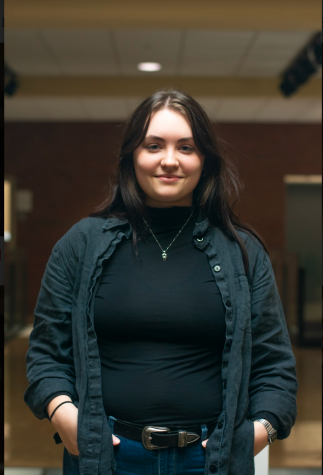
Alice Crow ’23 is the Editor-in-Chief emeritus for the Communiqué and a Political Science/Economics major. Alice grew up in Pittsburgh, just a few minutes...
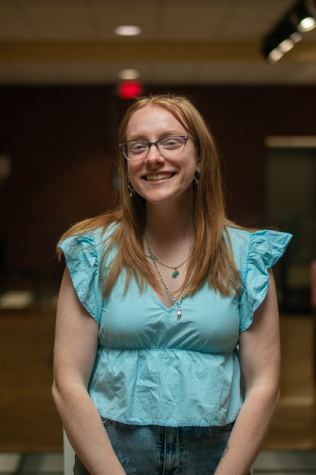
Michaela DeLauter '24 is a Creative Writing and Journalism major from Dover, a small town in Pennsylvania. Focusing on news, she is the News Section Editor...


